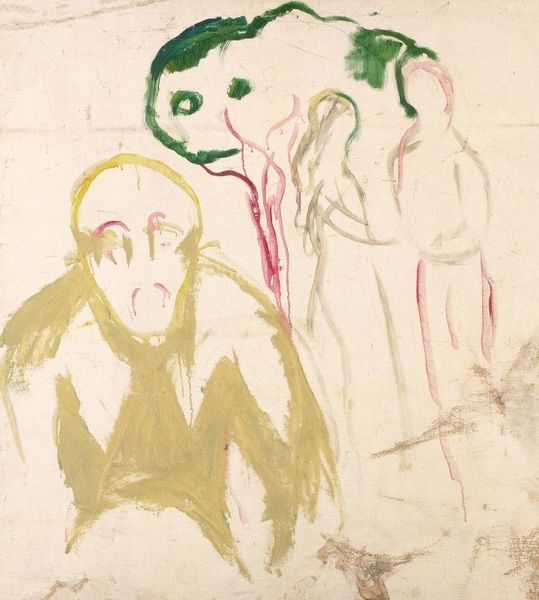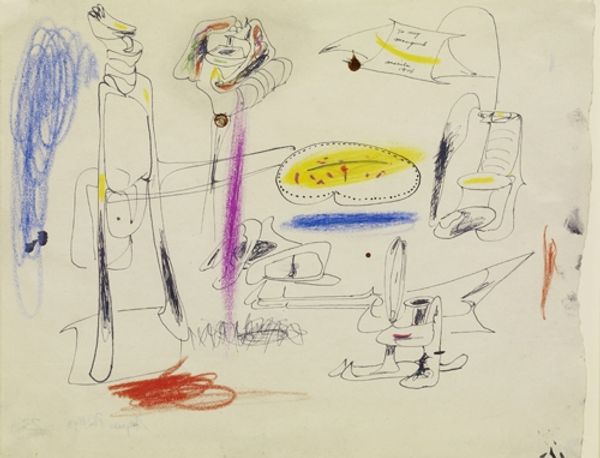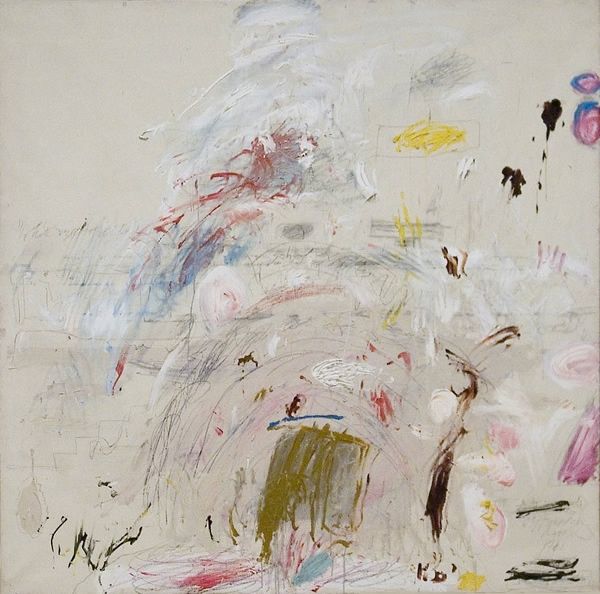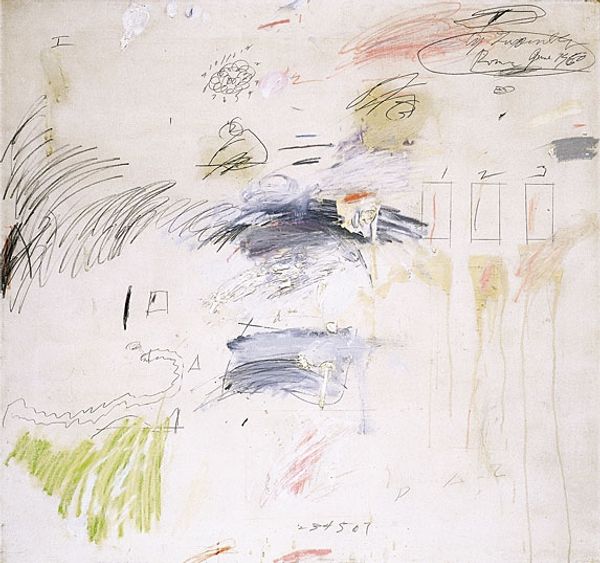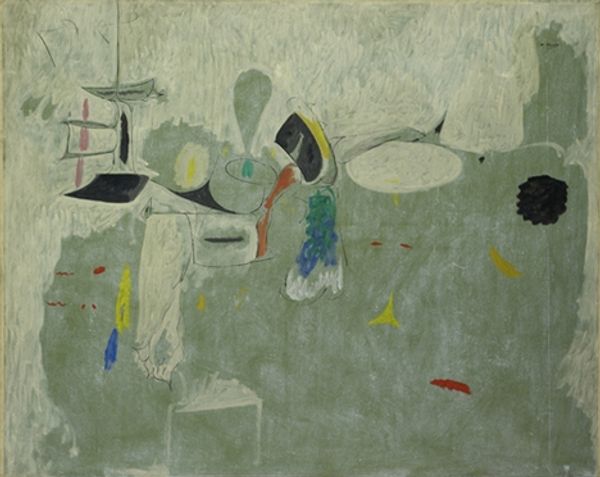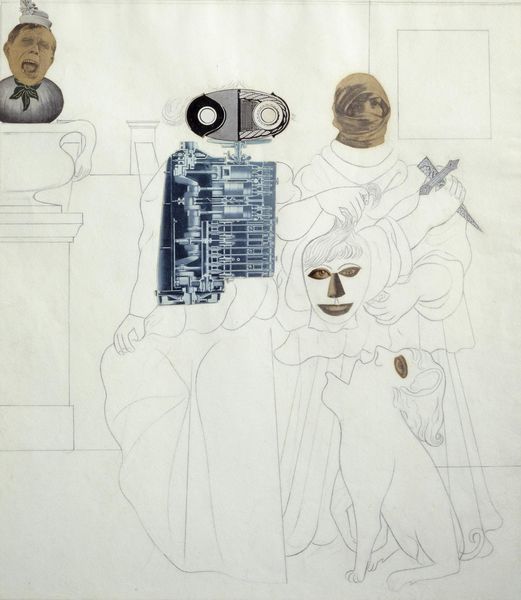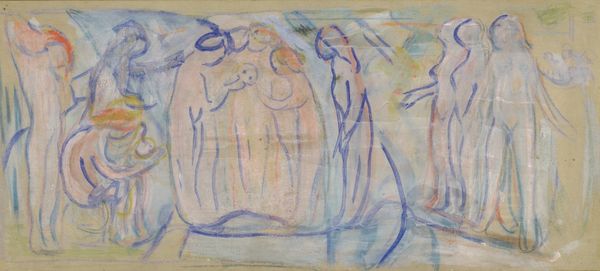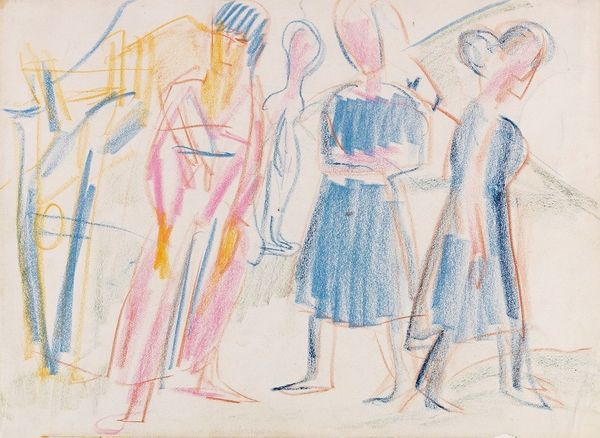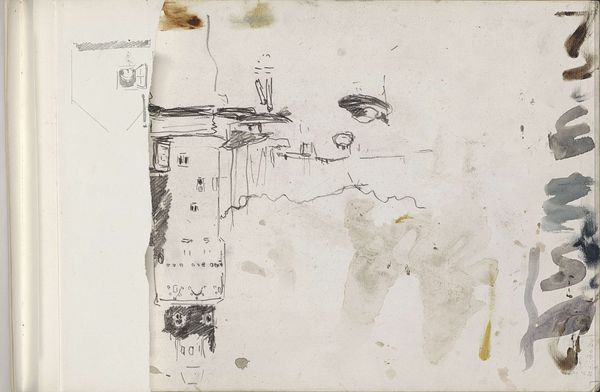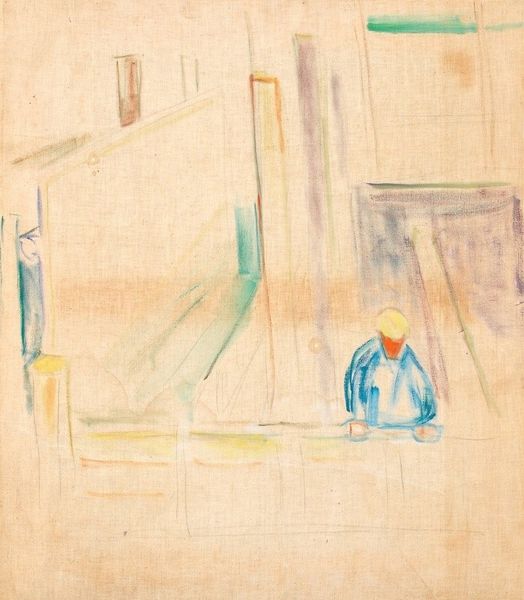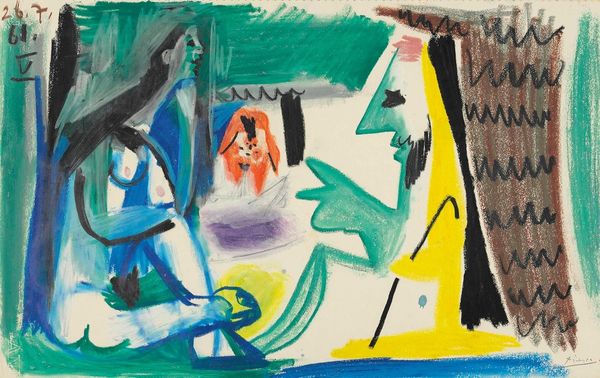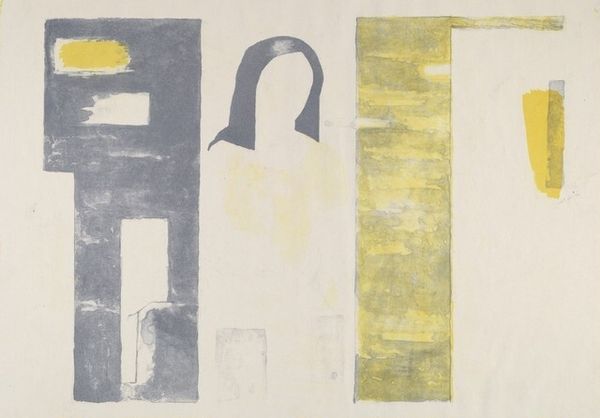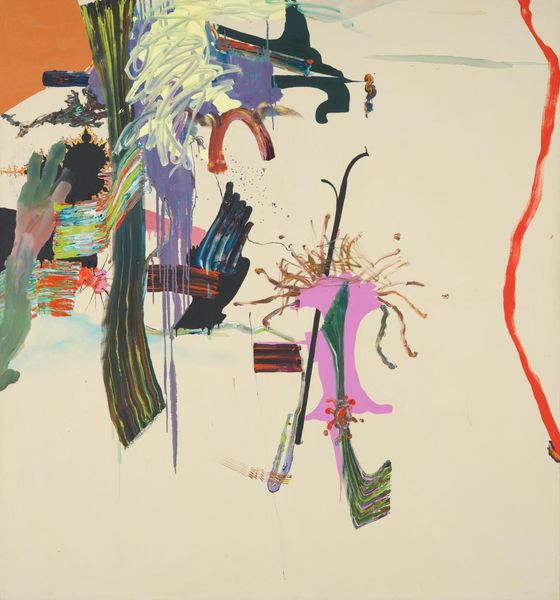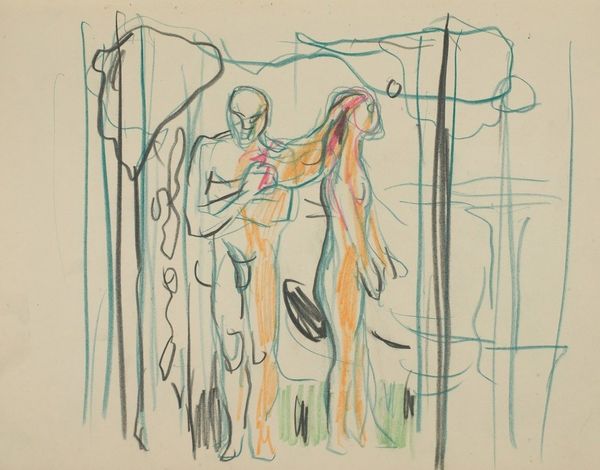
painting, watercolor
#
portrait
#
water colours
#
painting
#
figuration
#
watercolor
#
expressionism
#
watercolor
Copyright: Public Domain: Artvee
Editor: We're looking at "Four Girls in Åsgårdstrand," a watercolor by Edvard Munch from 1922. It's ethereal and ghostly – feels like a memory half-faded. I'm struck by the incompleteness of it, the raw sketchiness. What do you see here, in this watery echo of a scene? Curator: It feels like stumbling upon a dream, doesn’t it? The translucent layers of watercolor certainly lend themselves to that sense of fleeting beauty, a captured moment on the cusp of disappearing. Munch, you know, he often revisited themes throughout his career; locations, figures...almost haunted by them. Åsgårdstrand was particularly meaningful; it was where he spent many summers, a place of both joy and turmoil for him. This image—does it strike you as finished, unfinished, or perhaps intentionally somewhere in-between? Editor: Somewhere in-between, definitely! It’s like he wanted to show the process, not just the outcome. There's the setting so delicately sketched at the far left with green ink that bleeds together almost mimicking plantlife, but in contrast the figure is at once recognizable and ghostly. You said joy and turmoil – how might both be present here? Curator: Exactly! Look at the girls – there's an innocence, a fragility in those light washes of color. But the almost feverish application of color near the foreground contrasts sharply with the cool serenity of the garden; there's a sense of unease just bubbling under the surface. And water colors in general give me a very unique impression because Munch also conveys the transience of childhood. It’s as though he's grappling with time itself, and how memories change with each passing year. Do you notice that sort of dialogue too, between the serenity of a summer day and the subtle undercurrent of melancholy? Editor: I do now! That melancholy adds so much depth. It's more than just a pretty scene, it’s… a meditation on time and memory. Curator: Precisely. It seems that even with its simplicity, or perhaps because of it, Munch offers us a window into the complex and often contradictory nature of remembering.
Comments
No comments
Be the first to comment and join the conversation on the ultimate creative platform.
